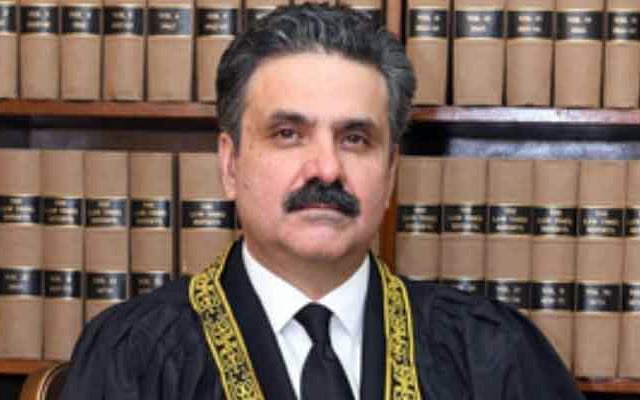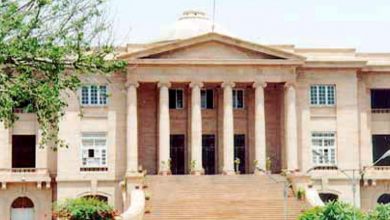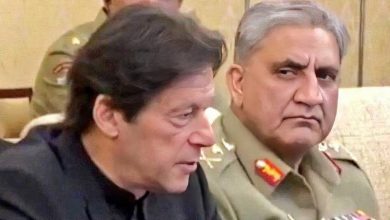CJ determined to purge judiciary of ‘executive meddling’

Chief Justice of Pakistan (CJP) Yahya Afridi has wasted no time in drawing a clear line against interference by executive agencies in the superior courts’ judicial functions, setting himself apart from his predecessor.
CJP Yahya Afridi, unlike his predecessor, has taken a decisive stance against interference by executive agencies in the judicial functions of the superior courts.
Sources reveal that shortly after assuming office, CJP Afridi met with six Islamabad High Court (IHC) judges, who had written a letter on March 25 to the Supreme Judicial Council (SJC) seeking guidance on agency interference in judicial matters.
Instead of offering direct guidance, the top court, with a majority of members, had previously supported ex-CJP Qazi Faez Isa’s preference to meet with Prime Minister Shehbaz Sharif to discuss forming an inquiry commission to investigate the IHC judges’ claims.
While the prime minister agreed to establish the commission, the proposed head, ex-CJP Tassaduq Hussain Jillani, declined to participate. Consequently, the SC initiated suo motu proceedings based on the letter from the six IHC judges.
During the proceedings, both the Lahore High Court (LHC) and the Peshawar High Court (PHC) admitted that agency interference in judicial matters is an “open secret”.
The LHC also highlighted concerns about the alleged harassment of two anti-terrorism court (ATC) judges, whose reports were forwarded to the Supreme Court Registrar for review by the larger bench addressing the IHC judges’ letter.
Justice Afridi had previously recused himself from sitting on this bench.
CJP Afridi emphasised that concerns raised by judges should align with the SJC’s code of conduct. “High courts are independent courts under the Constitution. Article 184/3 should not be invoked on the independence of high courts,” he stated.
Despite this, the larger bench has not resumed the suo motu hearing for the past five months.
Meanwhile, a campaign of defamation and alleged “witch-hunting” targeted the six IHC judges, with misconduct complaints filed against some of them. Against this backdrop, CJP Afridi’s meeting with the IHC judges holds considerable significance.
Legal experts believe that, unlike his predecessor, Afridi will evolve an effective strategy to address any executive interference in judicial matters.
A senior government official confirmed to The Express Tribune that CJP Afridi has asserted the necessity of upholding the principle of trichotomy of powers, ensuring that neither the judiciary overreaches into other institutions’ affairs, nor should other branches interfere with the judiciary.
CJP Afridi has also convened a SJC meeting on November 8, though the agenda remains undisclosed.
Several pending misconduct complaints in the SJC involve superior court judges, including the IHC chief justice, the chief election commissioner, and other Election Commission of Pakistan (ECP) members.
Justice Syed Mansoor Ali and Justice Munib Akhtar serve as SJC members, -alongside IHC CJ Aamer Farooq and the Balochistan High Court chief justice.
CJP Afridi has also called for a gathering of administrative judges of anti-terrorism courts on November 7 to review progress reportsa notable development as trials of PTI workers in terrorism cases continue to face delays.
A senior lawyer familiar with CJP Afridi expressed optimism, stating that Afridi was committed to unifying the judiciary and protecting judges from external influence.
“Judges will be protected, and there will be no interference in the high courts,” he asserted, adding that uniting the Supreme Court is Afridi’s most significant challenge after years of division.
A united judiciary, he said, would be better positioned to resist executive pressure.
Currently, the superior judiciary faces mounting pressure from executive authorities, especially with the 26th Constitutional Amendment. The proceedings of the Judicial Commission of Pakistan (JCP), where the executive’s influence has grown, pose another major test for CJP Afridi.
The JCP, responsible for nominating judges and forming constitutional benches, now faces government plans to increase the number of Supreme Court judges.
Meanwhile, the Senate Standing Committee on Law and Justice also approved the proposal to expand the number of judges from 17 to 25, with the government pushing to elevate judges from each province and form constitutional benches with like-minded judges.
Senators Kamran Murtaza and Hamid Khan opposed the increase, arguing that the Supreme Court should be consulted first as a primary stakeholder. However, the majority of committee members did not support this view.





